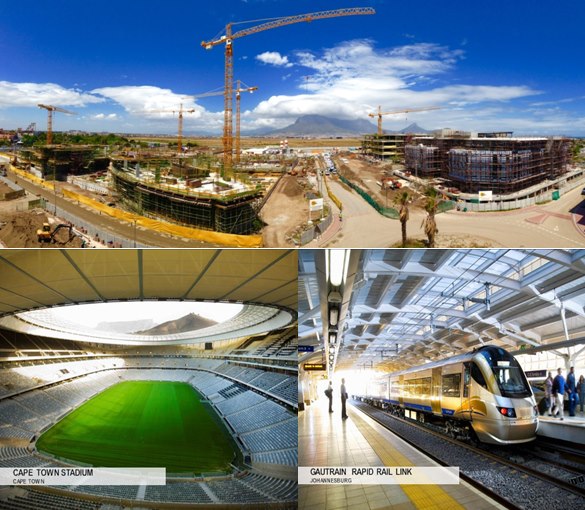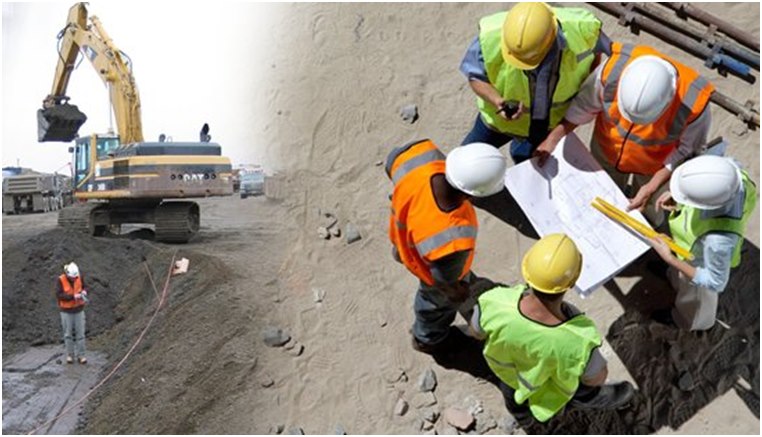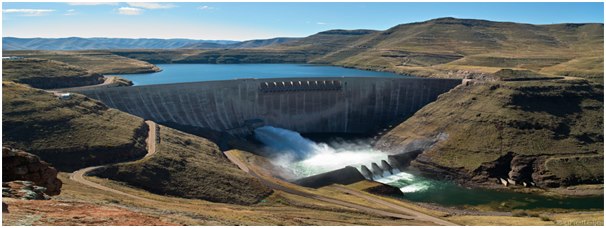When I was about 6 to 7 years old, I’d always get in trouble with my grandmother for digging tunnels and little dams around her yard. I’d miss most of my meals while constructing mini cities complete with roads, buildings and rivers. As one may say, passion breeds when we are young, in my case, my path to Civil Engineering had been laid before me at that moment.

Throughout my primary and secondary education I carried out thorough research about my burning passion in construction.With great mentorship from my teachers atShinimeShiimvula Primary School (Ondangwa, Namibia) andOtjikoto SSS, (Tsumeb, Namibia), I chose to major in science subjects(Physical Science and Mathematics) to pave the way to admission to pursue studies in Engineering at tertiary level. I would read about all major construction projects in the papers and would take special interest in the education backgrounds of the Civil Engineers running these projects. It was very exciting to see that most, if not all Chief engineers who ran major construction projects in Namibia had obtained their qualifications from Stellenbosch. This lured me to the doors of Stellenbosch University’s Faculty of Civil Engineering upon matriculation in 2013.
What is Civil Engineering? It is a professional engineering disciple that deals with the design, construction, and maintenance of the physical and naturally built environment, including works like roads, bridges, canals, dams and buildings. What lured me to this profession was the fact that it is centredon improving the lives of people. By continuously developing and upgrading the services and facilities of the public, it not only gives the Engineer a sense of responsibility towards humanity but brings forth a sense of satisfaction that the work carried out by the Civil Engineer contributes significantly to the wellbeing of the society. Civil Engineers are an integral part of society, without them, we would have no roads, airports, buildings, dams, harbours etc.
Being a very dynamic individual and I welcome diversity with open arms. One of the things that made it easier for me to choose Civil Engineering as a profession is the fact that it is a very diverse profession and offers a wide range of activities across a variety of disciplines. These disciplines are: Environmental Engineering, Geotechnical Engineering, Structural Engineering, Transport Engineering and Hydraulic Engineering. It is safe to say that a Civil Engineering degree gives you the best of both worlds due to its diversity (there’s a whole lot of things one can do in this field).


Benefits of Being a Civil Engineer
Field Work
Office time is spent on planning, making appointment and meetings. Most of the time, civil Engineers are outdoors at work sites monitoring buildings, running projects and tackling project issues. They are always on the move and what’s exciting is the fact that each project has its own distinct design challenges and operational issues. This makes Civil engineering an exciting profession as projects vary significantly from one another.
Team Work
Engineers work closely with contractors, architects and construction workers on various projects. This interaction brings forth a platform to share knowledge and ideas. Civil Engineers are team players and this paves the way to becoming great leaders within the community.
Creativity
Civil Engineers combine strong technical competence with creative designing. They take pleasure in establishing creative structures coupled with state of the art technology and architectural flair. Their line of work requires the knowledge of the construction industry, including electrical, plumbing systems and functional workings.
Pay
Engineering is an above average line of work and thus comes with a hefty pay check. The rewards are plenty in this line of work.According to Career junction, in 2014, the average salary of a Civil Engineer per month is R35 390. Engineers that are more experienced and work on more critical projects often make more and this also goes for those in management positions, comfortably eclipsing the R 60 000 mark. One way to earn a higher pay is to own your own company.
Importance
Engineers use their skills to optimize performance and efficiency of community systems.They also develop water and sewer systems that balance safety standards with delivery of water and sewer processing, which are key functions in city operation and residents’ health and comfort. This makes them central figures in community development. Without their unique talents, communities would not grow and prosper.
If you are a dynamic, hands-on, and diverse individual with a great love for infrastructure, Civil engineering is your thing. Please use the link below to see requirements for the BEng programme offered at Stellenbosch University. http://www.maties.com/assets/File/Ingenieurswese_Eng.pdf

Written by:
Ismael Nuunyango
BEng Civil
Stellenbosch University





